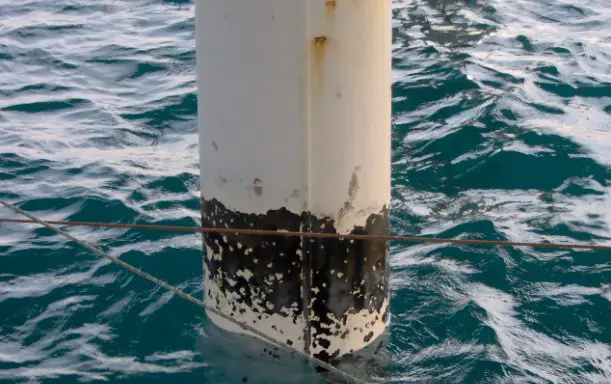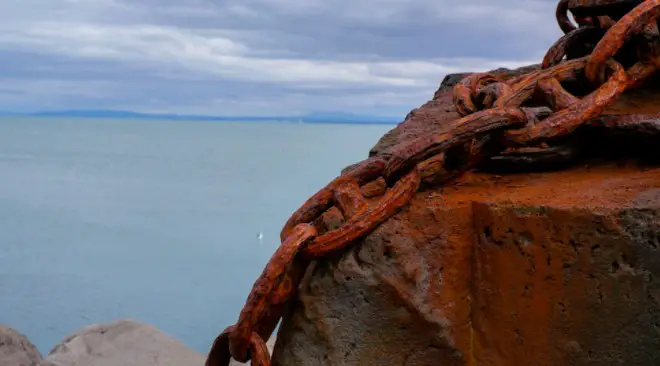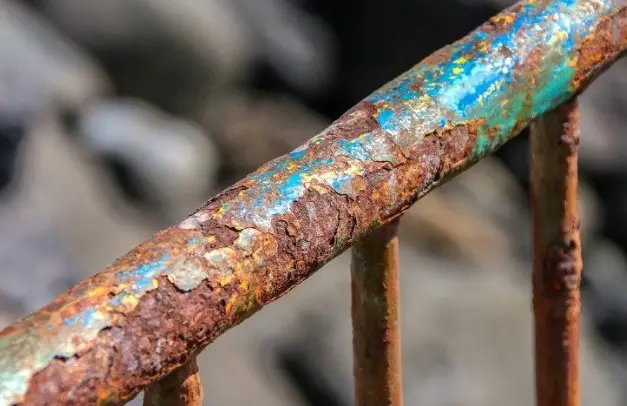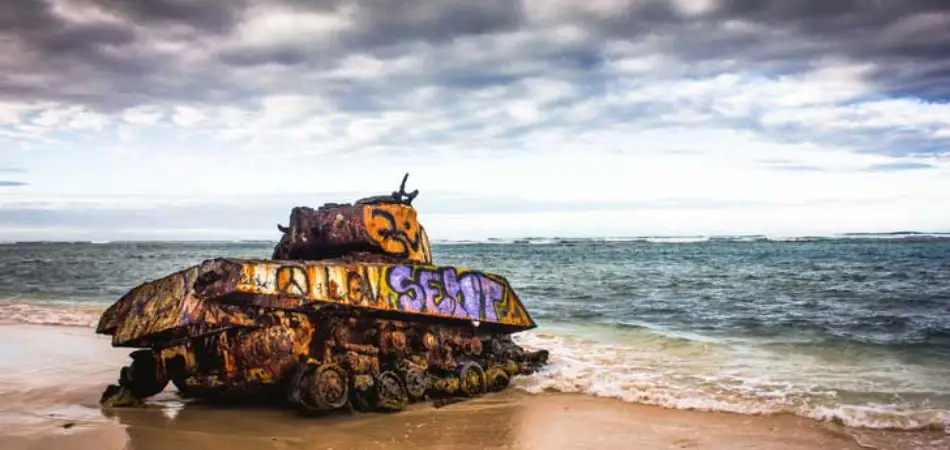Do you have some metals immersed in water, and are you seeing a reaction similar to rust? It is likely you see rightly as one of the things that contribute to metal corrosion is water. However, does metal rust in water? The truth is that the possibility of it rusting is so high, and the next paragraph gives the right answer to the question.
Yes, it does. Metals rust when exposed to water and oxygen. This is what scientists call the oxidation process. Different metals rust at different speeds based on their composition, surface treatment, and other factors. However, any metal that has iron in it can rust if it’s exposed to water and oxygen for an extended period.
In saltwater, rusting of metals happens faster because the quantity of dissolved ions present in it is higher than freshwater, and electrons move freely within the solution, i.e., salt water is an electrolyte.
This article gives more information on this topic by pointing out the process that makes metal rust in water, the duration of the process, and how to prevent it on metals that are always submerged in water.
Contents
How Do Metals Rust in Water?
Metals rust in water through a process known as oxidation, and it occurs when the iron component of metals react with water and oxygen to form iron III oxide which is commonly known as rust. For metal or iron to rust, there must be water and oxygen.

At the early stage of the oxidation (rusting) reaction, the first reaction that takes place is the breaking down of oxygen molecules by water, which aids the reaction of the metal with oxygen. When this process is over, iron present in the metal will lose its electrons while oxygen will absorb them.
The water will react with the ferrous ions in iron to produce hydroxide, ferric hydroxide, and hydrogen. The metal will keep forming iron compounds if the hydroxides keep losing their water content.
These chemical reactions aid the formation of the rust particles that are always seen on the surface of exposed metals, and dropping off of these rust particles will keep exposing the inner part of the metal to rusting till the whole metal disintegrates.
Can Saltwater Rust Metals?
In saltwater, metal will rust faster because the salt present in it will start an electrochemical reaction which stops the metal from forming a protective film that would have protected the metal against rust.
Rusting of metal indicates the occurrence of a chemical reaction in the metal, and iron III oxide is one of the results of exposing a metal that contains iron to moist air or water.

Tip: Like acid rain, dissolved salt in saltwater can speed up the rate of oxidation reaction (rusting), and dry oxygen or pure water cannot make iron rust because it lacks the necessary conditions suitable to make metal rust.
How Long Does It Take For a Metal To Rust in Water
If metal is in an area where oxygen and water are present or in enough quantity, the metal may start showing signs of rust within four to five days. In water, green rust, which is the result of a reaction between iron and chloride will first appear, and it’s a result of the corrosion of the iron component of the metal.
In an outdoor area with a high amount of water vapor in the air (high humidity), iron will begin to show signs of rusting from the first day the iron was kept, while in an area with a low amount of water vapor in the air (low humidity), iron will begin to show signs of rusting within two to four days.
Tip: There are various types of metals in existence, and these differences play a major role in the rate at which they rust. A metal with a high quantity of iron in it will rust faster in water than a metal with a low quantity of iron, or metals that are mainly composed of steel.
Can Rust in Metals Be Avoided?
Yes, rust in metals can be prevented by washing, thoroughly rinsing, and drying metals after removal from saltwater, especially the tiny openings where residues of the saltwater might be found.

Metals that are constantly in water, especially saltwater can be galvanized to prevent rusting. With galvanization, metals especially steel can be prevented from rusting, and it is done by dipping the metal in zinc which coats it. The zinc coating will stop the metal from partaking in the oxidation reaction, where iron reacts with water and oxygen to form rust.
Also, metals constantly kept in saltwater should be completely dipped in kerosene or oil before storage. This method of rust prevention keeps boat engines and other metals that are always submerged in water when a boat is moving from rusting.
Tip: Scraping or scratching the surface of a galvanized metal will expose it to oxygen and water which will react with iron in the metal to form iron III oxide. Also, there are specialized paints produced for the sole purpose of coating metals to prevent them from rusting.
Frequently Asked Question (FAQ’s)
Can Mild Steel Rust in Water?
Yes, mild steel when kept in water can rust with time because the carbon present in it is not capable of preventing it from rusting, except if the mild steel has a protective coating.
If elements like chromium and titanium are among the mild steel components, they can only enhance the level of corrosion resistance of the mild steel, but cannot make it rust-proof.
Can All Metals Rust in Water?
No, all metals cannot rust in water. For example, aluminum cannot rust while in water because of the protective coating of aluminum oxide on its surface. This protective layer is a barrier that prevents the metal from reacting with oxygen and water.
Conclusion
Metals will rust in water if the conditions that favor or speed up the reaction are all present. Conditions like the presence of oxygen, low or high humidity in the environment of the reaction, and the available water being saltwater.


